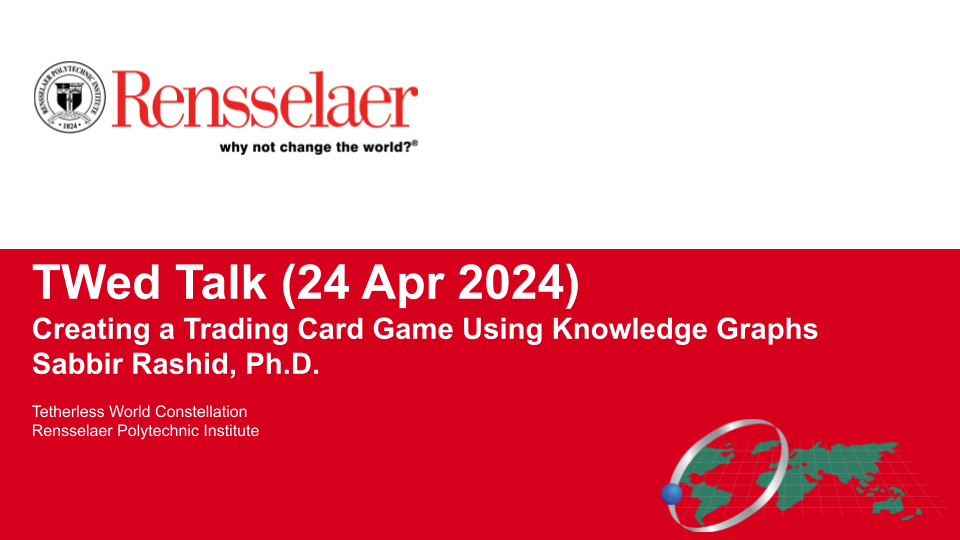
WHAT: Sabbir Rashid on "Creating a Trading Card Game Using Knowledge Graphs"
WHEN: Weds, 24 Apr (6p)
IN-PERSON: Winslow 1140
VIDEO: https://youtu.be/etsag1d2ezE
EVENT PAGE: https://bit.ly/4d0evO6
TWC's Dr. Sabbir Rashid leads us in what promises to be an interesting and fun a discussion of Tetraverse TCG, a video game built on Semantic Web and knowledge graph technologies.
DESCRIPTION: Tetraverse TCG is a turn-based strategy game with unique gameplay and high-quality cards. It uses Semantic Web and knowledge graph technologies for data representation, making it stand out in the trading card game space. The game employs its own set of ontologies and data is stored in various knowledge bases. This data is used to automate the card image generation process, allowing for efficient updates when there are changes in a card. The use of semantic knowledge representation allows our data to be machine-understandable, which is especially important as we work towards the development of our Tetraverse TCG video game. We are pursuing the further encoding of gameplay components and abstracting out components from our ontologies for more general use. Additional research directions include the automatic creation of abilities, the generation of card text, and the testing of the fairness of gameplay by balancing abilities, cards, and decks.
BIO: Sabbir M. Rashid is a Postdoctoral Research Associate at the RPI Tetherless World Constellation. Dr. Rashid received his Ph.D. from Rensselaer Polytechnic Institute in 2023, working with Professor Deborah McGuinness on research related to data annotation and harmonization, ontology engineering, knowledge representation, and various forms of reasoning. His dissertation research involved the application of deductive and abductive inference techniques over linked health data, such as in the context of chronic diseases like diabetes. Before attending RPI, Sabbir completed a double major at Worcester Polytechnic Institute, where he received B.S. degrees in both Physics and Electrical & Computer Engineering. Much of his graduate studies at RPI involved research related to the semantic annotation and transformation of data using Semantic Data Dictionaries.
